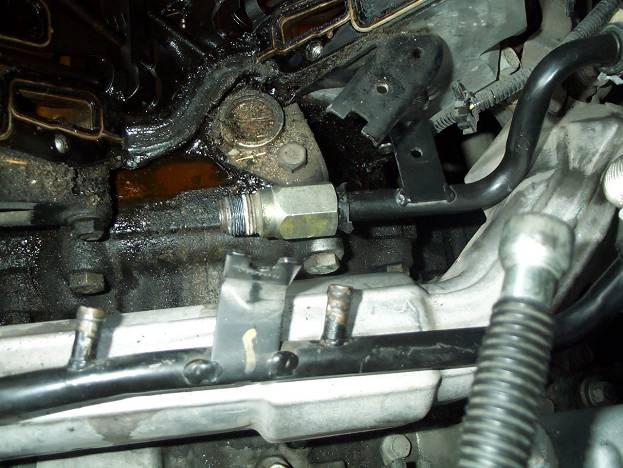I am replacing the intake manifold gaskets on my wife’s ’97 Monte Carlo’s 3.1L. This is by far the most intricate and tedious job I have ever done. I cannot believe how interconnected everything is on this engine!
To do this job, I’ve had to remove a ton of wires and vacuum tubes, miscellaneous electrical parts, two different coolant hoses, the alternator, the power steering pump (not complete removal; just had to move it), the fuel injection system, the upper plenum, both front engine mounts, the air cleaner, the mass air flow sensor, etc.
Here is how I started:

And here is where I am now:

(This is looking in at the engine from the driver’s side.)
Since I have everything out, I might as well replace the gaskets on the fuel injectors:

I noticed a speck or two of dirt inside the rails. I’m trying to keep everything as clean as possible, but it’s difficult to do it perfectly.
Here’s why I have to remove three of the pushrods on each side:

In certain places the gasket overlaps the pushrod! The roller rockers will thankfully make the job relatively simple.
The single part on which I wasted the most time was this:

The bright thing in the center is where a heater core line plugs into the intake manifold near the thermostat housing. The Haynes manual says you are supposed to be able to just twist the black metal hose out of the shiny part, but I could not figure out how it is done. I alternately used a set of quick connect separators and a wrench to try to get it separated but nothing worked. I ended up getting out a 1 1/16” open end wrench and just unscrewed the shiny thing from the intake manifold. I now wish I had started out doing that. I hope this part does not leak when I am done!
This engine’s exterior is full of grease. I will spend a little time with Simple Green and paper towels before reassembly.
Obviously my Wal Mart brand 5W/30 oil and oil filters and infrequent oil change cycles haven’t caused sludge buildup. Try that on for size, you boneheads who use fancy, expensive boutique oils!






